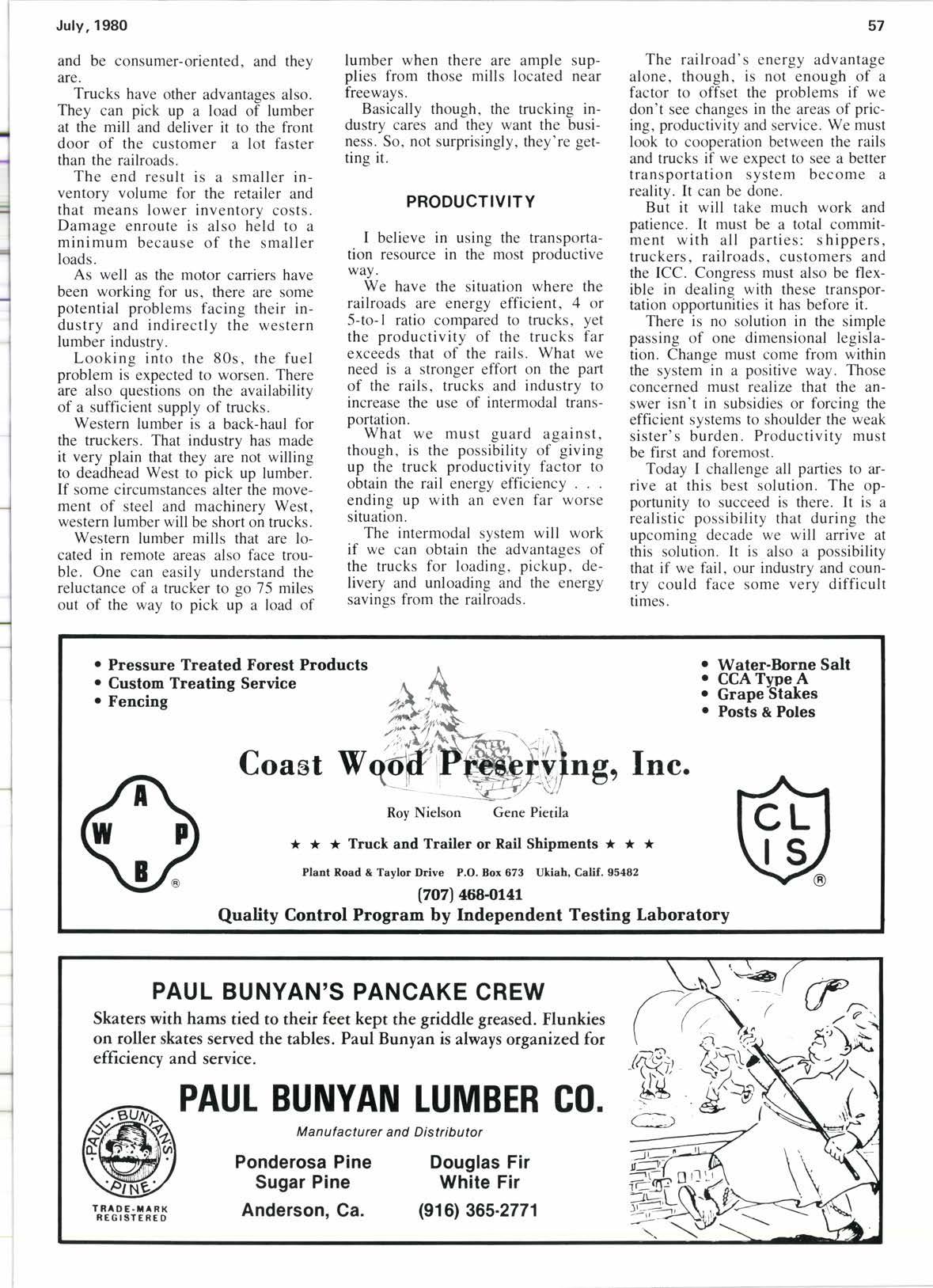
2 minute read
Keeping western wheels rolling
I t oRE AND more the lumber and lUlbuilding materials industry is turning to highway carriers for transportation, but are you aware of the complex organization supporting the trucker who rolls up to your shipping dock?
Great distances, relatively sparse population, varied terrain and unusual operating conditions make trucking different in the West. However, because of demographic and geographic factors the area is highly dependent upon motor transportation. With unparalled requirements for equipment development, highway planning and maintenance, as well as financial and overall planning, a veritable alphabet soup of organizations has developed to support the industrv.
Uni{ue among them is the Western Highway Institute (WHI), a purely technical organization. Based in San Bruno, Ca., it is dedicated to developing scientific information on truck combinations, operation and environmental characteristics and truck taxation in the 13 western states. Their work is important to you, because the bottom line can affect the efficiency and cost of your transportation.
One of the principal purposes of
Rail Shipments Drop
For the first time in modem history, the railroads have transported less than half of the western lumber shipments.
Truckers narrowed the gap last year to a O.6Vo difference by carying 48.6Vo of the lumber shipped in the West. Rail caniers accounted for 49.27o. Shipments of 2.2Vo were waterborne.
In the past 12 years the truckers have more than doubled their shipments with the railroads experiencing a 33Vo drop. Because of the continually higher rail freight rates, inadequate car supply and locomotive power, as well as slipping productivitv. it seems that the railroads will coniinue to lose their share of the market.
Utilizing productivity and the need of customers for smaller loads to trim inventory costs, the motor caniers are expected to take advantage of this market opportunity.
Sfory at a Glance
Trucklng in the West is unlque. .. Western Highway Institute backs industrywith technlcal information. rePresentatlves f rom carrlers, manuf acturers, suppllers unite in research.
WHI is presenting the technical case for more productive vehicle combinations. In the 33 years since it was founded, vehicle size and weight standards have shown progress. The design of truck transport equipment developed by the industry for use in the West has changed. Continuing chanses. according to WHI officials, repreient one of ihe strengths of the industry in meeting competition and filling economic needs. For example. they cite the B Train which is attracting interest in some of the western states.
Research falls into three major areas. Evaluations of optimum truck combinations designed to serve the western economy in the future is one.
A second researches and evaluates the operational and environmental charaiteristics of truck combinations for compatibility with other highway uses. The third checks into equitable levels of taxation of the transportation systems, an item which hits everyone in the pocketbook in one form or another.
Western state trucking associations mav avail themselves-of the WHI resources, technical engineering expertise, legal counsel, and technical research data, reports and information without cost. Other grouPs such as state highway departri'ents and transportation agencies also have access io their resources. In addition, the organization works closely with all industry organizations.
Membership in WHI is open to individuals and companies interested in western hiehwav transportation. Approximatel! haif the rirembership is comprised of truck operating companies. Manufacturers, suppliers of services and other related businesses make up the other half. All members participate in the institute on an equal basis.
A professional staff of l0 provides the overall direction of the research effort. An extensive committee structure comprised of members with special expeitise is responsible for much of the technical and research work. All programs are financed entirely through membenhip dues.
Trucking in the western states benefits from the backing of this specialized, nonprofit trade association.










